Lucius Cornelius Sulla. "The start of a long journey"
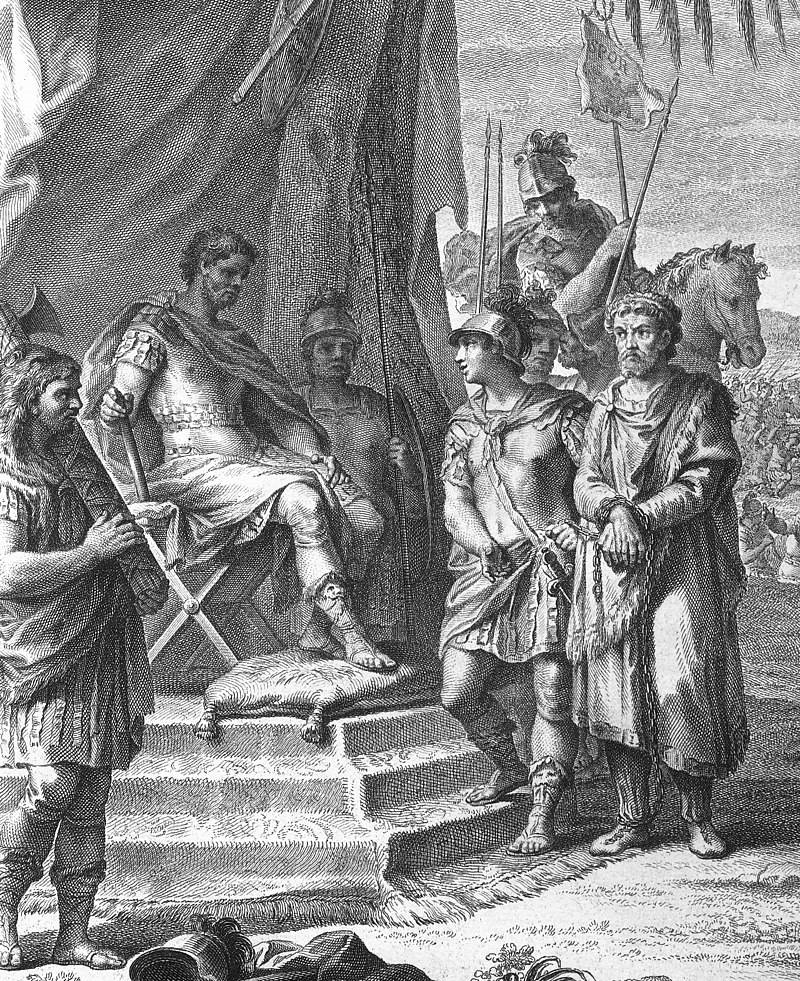
Gabriel de Bourbon. Captivity of Jugurtha
Lucius Cornelius Sulla, nicknamed Felix (lucky, happy) is one of the most controversial figures of ancient Rome. Moreover, this inconsistency was already noted and emphasized by ancient Roman historians. Many of them, as it were, divide Sulla's life into two halves. Sallust, for example, writes:
Velleius Paterculus, author of the Roman stories", calls Sulla a man
He also believed that Sulla could rightly be called "Happy", "if his life ended with the victory."
And Cicero and Varro often quoted a phrase whose author is currently unknown:
European historians, starting from the XNUMXth century, are also at a loss, noting that, having become a dictator and seizing sole power, Sulla used it to protect the republican system (aristocratic republic).
This opinion was shared, for example, by the authoritative German historian Theodor Mommsen, who wrote in his work "History of Rome":
The Soviet and Russian historian A. B. Egorov believes that the dictatorship of Sulla strengthened the monarchical trend in the development of Rome, but at the same time, again,
V. S. Sergeev is more critical, believing that Sulla
(i.e., principate).
M. I. Rostovtsev wrote about the same:
Another Soviet historian, R.Yu. Vipper, even claimed that Sulla became the first Roman emperor in the modern sense of the term:
And S. Kovalev called Sulla "the first emperor in the new, and not in the republican sense of the word."
In general, there is no unity of opinions and assessments, although, of course, the image of Sulla is traditionally drawn exclusively in black colors.
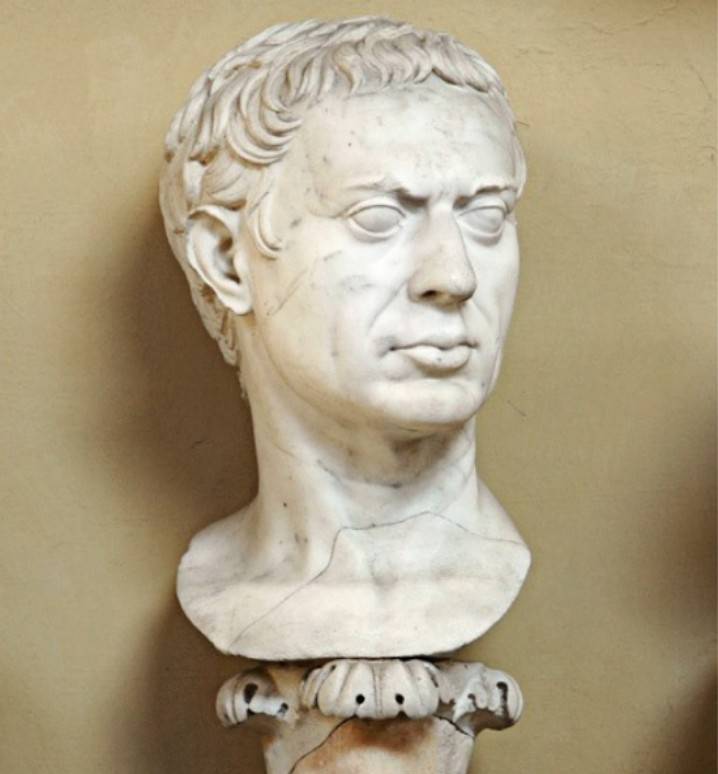
Lucius Cornelius Sulla, bust. Vatican, Chiaramonti Museum
In a small series of articles we will talk about this person.
Origin and early life of Lucius Cornelius Sulla
The future dictator was born in Rome in 138 BC. e. and came from the ancient patrician family of the Cornelii, whose representatives were the famous Scipio. However, Sulla belonged to another, greatly impoverished branch of the Cornelii - the Rufins. After the death of his father, he did not even have his own house, which for a Roman patrician in Rome was a sign of extreme poverty.
Despite the low prosperity of his family, Sulla received a good education. He knew the Greek language and understood Greek literature, wrote satirical comedies, and had a talent for oratory. Later, he brought from captured Athens the libraries of Aristotle and Theophrastus, who is now called the "father of botany." Many believe that this was of great importance for the further development of Hellenophilism in Rome.
But in his youth, Sulla had a reputation as a spoiled varmint, spending time in the company of actors, mimes and citharists. It is said that the young Sulla was the lover of the wealthy freedwoman Nikopol and actually lived at her expense. His affairs improved significantly after she, dying, bequeathed to him all her property.
I must say that throughout his life Sulla was known as a very loving person, which was not encouraged in republican Rome. However, Sulla was even proud of his numerous extramarital affairs, because he believed that he was descended from the goddess Venus.
And after the victory in the Second Civil War, he appropriated two agnomens - Felix ("Lucky" or "Happy") and Epaphroditus ("Beloved of Aphrodite" - the Greek goddess of beauty and love, which in the 200s BC began to be identified with Roman Venus).
Sulla was officially married 5 times.
The beginning of military service
Sulla began military service only in 107 BC. e., at that time he was about 31 years old. It is said that he could choose between the armies of the two consuls. The first was Lucius Cassius Longinus, who went to war against the Cimbri and their Helvetian allies (where he was defeated and died). The second is Gaius Marius, who was supposed to fight against the Numidian king Jugurtha (the so-called Jugurthian war went on from 112 BC and ended only in 105 BC).
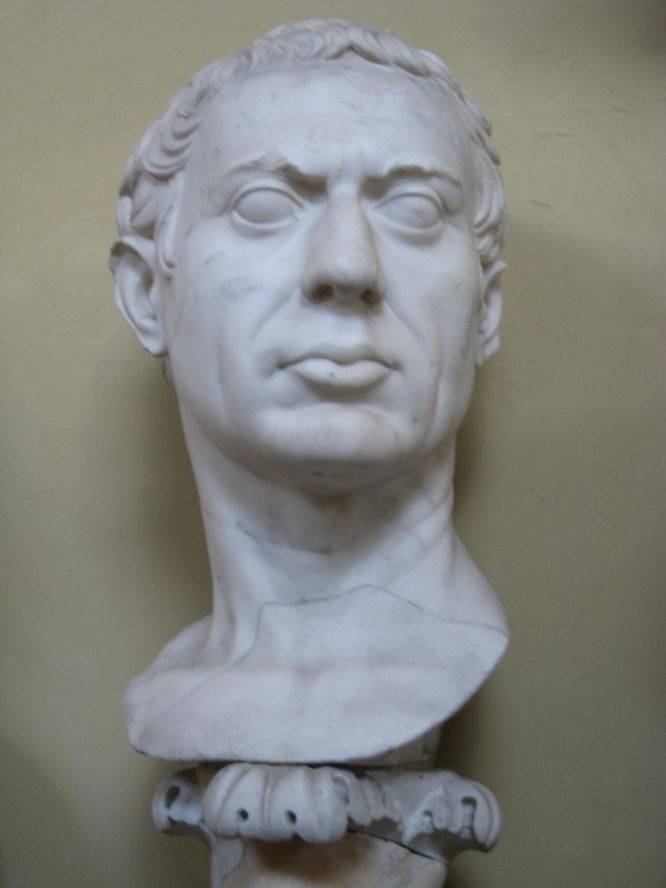
Guy Mari, bust, Vatican Museums
Jugurtha was the grandson of Masinissa, an ally of Scipio in his war against Hannibal. This Numidian king played an important role in Rome's victorious Battle of Zama.
Sulla chose the army of Marius, to whose relative he was married. He took the position of quaestor (the lowest in the system of Roman magistracies). At that time, the quaestor was an assistant consul with an indefinite range of duties. The quaestor could act as a supplier, buying food and fodder. And he could command part of the army.
Sulla successfully coped with the formation of cavalry units, which he then led to the active army - to North Africa. Then, in the position of propraetor, he held successful negotiations with the king of Mauritania Boc, as a result of which Jugurtha, who had come there for negotiations, was captured in the Mauritanian camp.
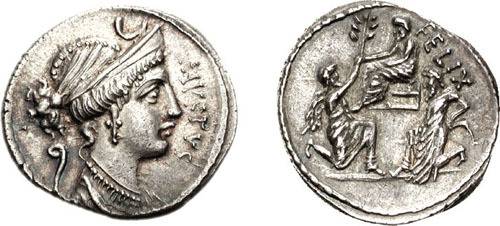
Coin minted by Sulla's son Faustus: Bocchus (left) gives Jugurt Sulla, who sits in the center
Sulla handed over the captive to Mary, and he led the defeated king through Rome during his triumph (January 1, 104 BC). At the end of the procession, Jugurtha's royal clothes were torn off, golden earrings were pulled out of his ears and placed in the underground Mamertine prison, where he soon died of starvation. However, Livy claims that the Romans did not wait for the death of Jugurtha, but strangled him already on the sixth day of his imprisonment.
War with the Cimbri
Meanwhile, in the north, things were far from brilliant for the Romans. The Romans first encountered the Germanic people of the Cimbri on the Danube in 120 BC. e. In 113 BC. e. the Cimbri defeated the Roman army in Norica (the area between the Drava and the Danube) and moved to Gaul, where the Helvetii (the Celtic tribe, after which the territory of modern Switzerland was named Helvetia) became their allies. In 109 BC. e. they defeated the army of the governor of Narbonne Gaul, Mark Junius Silanus.
We have already talked about the defeat in the Kimbrian War in 107 BC. e. armies of Lucius Cassius Longinus. And on October 6, 105 BC. e. in the battle of Arausion, the Cimbri and Teutons also defeated the army of the consul Gnaeus Mallius Maximus. After this, the Cimbri invaded the Iberian Peninsula, but were repulsed by the Celtiberians and returned to Gaul, again threatening the Roman borders. Gaius Marius was chosen for the role of "savior of the fatherland" in Rome, who was elected consul in absentia for the year 104 and was supposed to go to war with the Germans.
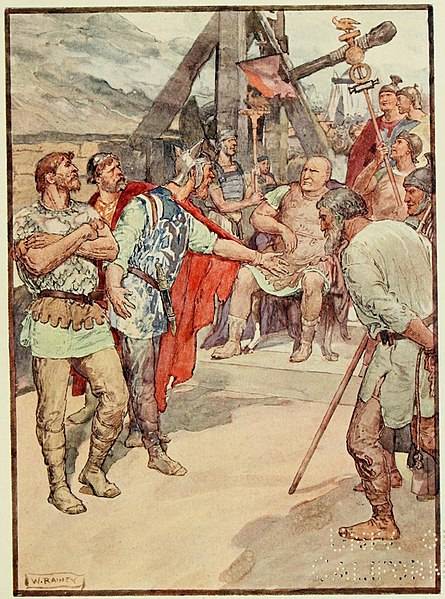
Marius and the ambassadors of the Cimbri. Illustration by W. Rainey, 1900
Sulla in his army was at first a legate, and then a military tribune. In 104 BC. e. in one of the battles, he managed to capture Kopilla, who led the tribe of tectosages.
In addition, he successfully negotiated with the local tribal leaders, due to which some of them took a neutral position. But these successes began to cause a feeling of discontent among Marius, who became jealous of the popularity of Sulla. After all, even in the victory over the Numidians in the Jugurtine War, some in Rome gave the decisive role not to the commander-in-chief, but to his talented subordinate.
At the beginning of 102 BC. e. Sulla passed under the command of the second consul - Quintus Lutacius Catulus, whose son would later become his loyal supporter. Catulus, unlike Marius, did not possess the talents of a commander, and therefore Sulla had a great chance to prove himself. As a legate, Sulla managed to inflict several defeats on the Alpine tribes, to organize the supply of the army, and then acted very successfully in the decisive battle of the war of Vercelli (July 30, 101 BC).
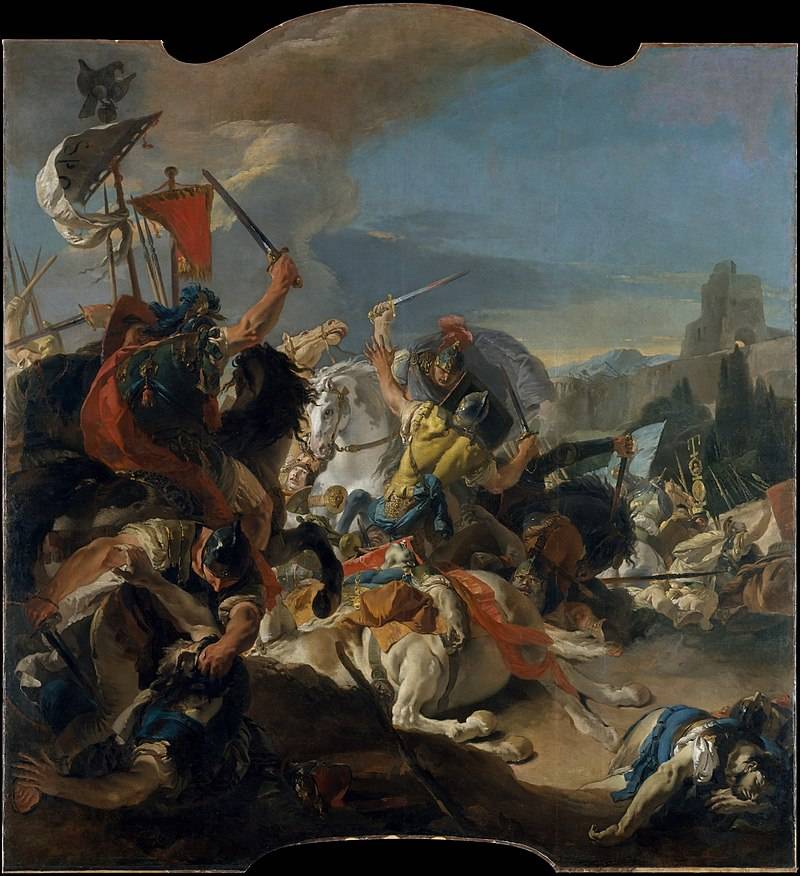
Giovanni Battista Tiepolo. "Battle of Vercelli"
Modern historians believe that the united armies of the consuls (over 52 soldiers) outnumbered the German army, which, according to various authors, could contain from 25 to 48 people. In addition, the Romans had an advantage in the number of horsemen. The army of Catulus took up positions in the center, parts of Mary - on the flanks.
The battle began after the collision of the infantry of Mary with the cavalry of the Cimbri. Plutarch wrote that the Cimbri started the battle, but were put to flight. Orosius, on the contrary, claims that it was the soldiers of Mary who suddenly attacked the cavalry of the Germans. One way or another, they were carried away by the pursuit of the retreating enemy. Later, both wings of the Marian troops joined at the enemy camp and, turning, hit the Cimbri in the rear. However, until then, the main events unfolded in the center, where the parts of Catulus stood, and Sulla found himself in the very middle of the battle.
Roman authors were surprised to say that women of the barbarians took part in the battle, many of whom, in order not to be captured, committed suicide (like the two sons of the leaders of the Germanic tribes). But their dedication could not improve the situation: being surrounded and attacked from the rear, the Cimbri lost the battle and suffered huge losses. Boyorig, the head of the barbarian alliance, and Lugius, one of the tribal leaders, were killed in battle. The threat to Roman possessions from the Germanic tribes was eliminated for 20 years. Both Catulus and Marius claimed to be the winner. The Senate decided to hold a joint triumph of these consuls.
Political career attempts
In Rome, Sulla, on the second attempt, was elected to the office of city praetor. Then for some time he acted as governor in Cilicia. In this position, he supported the election to the throne of Cappadocia Ariobarzanes I, known by the speaking nickname Philoromeus ("loving the Romans"). This did not please the king of Pontus Mithridates VI Eupator. He had his own candidate - Gordius, who, in alliance with the Armenian king Tigran II, tried to remove Ariobarzanes, but was defeated by Sulla.
Sulla also went down in history as the first Roman official to enter into negotiations with Parthia. Returning to Rome, he tried to stand as a candidate for the election of consuls, but just at that time an uprising began in the Italian lands, whose inhabitants demanded equal rights with the Romans.
Allied (Mars) War
Roman citizenship provided many benefits, both in terms of property rights and personal security (corporal punishment and torture were prohibited against Roman citizens). In addition, the Italians, who had the status of "allies of Rome", did not have the right to cultivate land owned by the state.
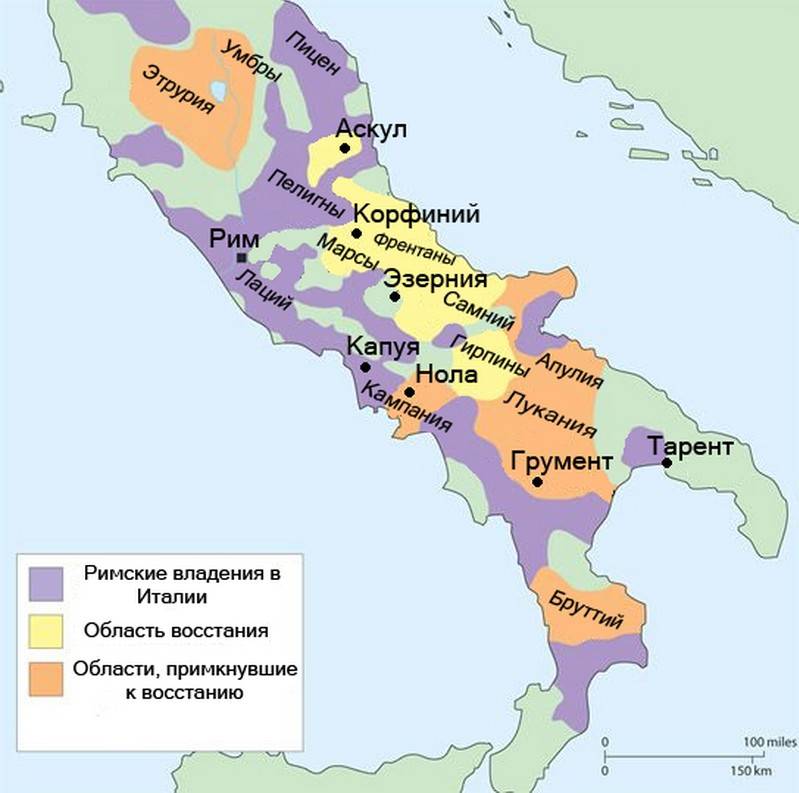
Settlement of tribes in the Apennine Peninsula
Convinced that Rome did not want to listen to their requests, the tribes of Mars, Marrucins, Peligni, Frentani, Piceni, Vestins, Girpins, Samnites, Lucans and Iapygs tried to create their own confederate state, the capital of which was Corfinium, renamed Italica. Coins were minted with the image of a bull (a symbol of Italy), trampling on a Roman she-wolf. Latium, Etruria, Umbria - the Greek cities of southern Italy, remained faithful to Rome. And in Campania, the common people sympathized with the allies, the aristocrats - with Rome.
After the outbreak of hostilities, Sulla became a legate in the army of the consul Lucius Julius Caesar. He had to interact with Gaius Marius.
Campaign of 90 B.C. e. was not very successful for Rome, and therefore, on the initiative of Lucius Julius Caesar, a law was passed granting Roman citizenship to communities that did not take part in the uprising or laid down their arms within two months. But the Marsi, Samnites and Piceni refused to stop fighting.
In 89 BC. e. Sulla led the army of Lucius Caesar and fought a successful battle with the most dangerous tribe of Mars for Rome. He then led the advance of the Roman forces in Campania and Samnium, capturing Nola and Pompeii.
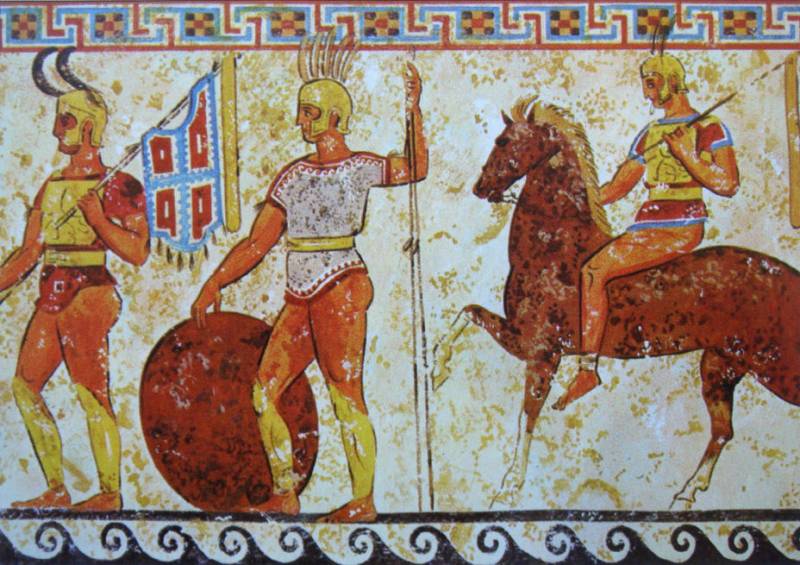
Samnite Warriors. Fresco from Nola, 330–310 BC e.
Then he managed to force the surrender of the city of Eklan (giving it to his soldiers to plunder) and Bovian, one of the capitals of the rebellious Italian tribes. Gaius Cosconius defeated the Samnites in Apulia. To the north of Rome, Gnaeus Pompey Strabo, Quintus Caecilius Metellus Pius, Gnaeus Pompey and Lucius Cornelius Cinna successfully operated against the Marsi, Vestins, Marrucins and Peligni.
Sulla's success in that war was so obvious that he received a unique award - the obsidian crown, which had been awarded only twice in the previous two centuries.
However, now, after concessions to the Italians, two categories of citizens appeared in the Roman Republic - "old" and "new". The contradictions between them soon led to two civil wars, one of the main characters in which was Sulla. We will talk about this in the next article.
Information